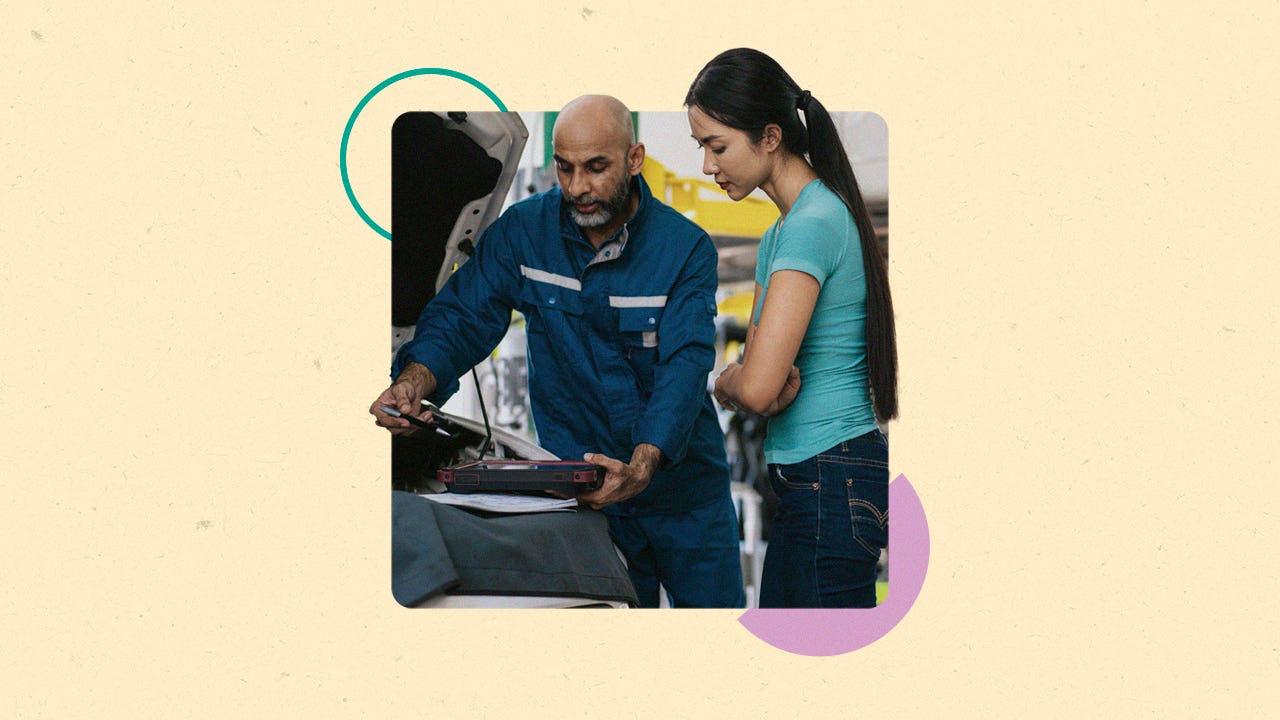Does refinancing a car hurt your credit?

Key takeaways
- Refinancing a car may temporarily lower your credit score by a few points.
- Applying for any loan or credit product generates a hard inquiry, but many lenders offer prequalification to check your rates first.
- Refinancing could be worth it if the average market rate is lower or your credit score has improved since you took out your current auto loan.
When you apply for auto loan refinancing, the lender typically does a hard credit check that could negatively affect your credit score temporarily. Swapping out your current loan for a new one could still be a smart financial move, particularly if you can secure a better auto loan rate.

Best auto loan refinance rates
Want to know what the current refinance rates are? Let Bankrate help you with its auto loan refinance rate page.
Learn moreHow refinancing a car can hurt your credit
Before diving into how refinancing an auto loan can hurt your credit, it’s worth understanding how this three-digit number is calculated.
5 Factors that make up your FICO score
- Payment history: 35 percent
- Amounts owed: 30 percent
- Length of credit history: 15 percent
- Credit mix: 10 percent
- New credit: 10 percent
Here’s a closer look at the potential impact of refinancing on your credit score.
1. It generates hard inquiries on your credit report
Applying for auto loan refinancing generates a hard credit inquiry that remains on your credit report for up to two years, but it only impacts your score for up to 12 months. Consequently, refinancing a car loan – which involves applying for a new loan – could temporarily lower your credit score, especially if you apply with multiple lenders.
If you submit loan applications within a 14-day period, the FICO credit scoring model will group them into a single inquiry. If the lender uses VantageScore, this window lasts up to 45 days. Thought of as rate shopping, it can minimize the impact on your credit score.
2. It lowers your account’s average age
Refinancing restarts your car loan. That can make it harder to qualify for other types of credit in the short term since opening a new auto loan decreases the average age of your accounts. Fortunately, account age makes up 15 percent of your credit score under the FICO model, so this may not impact your score very much.
Your payment history and debt load, which hold more weight, could potentially offset the drop when you refinance, particularly if you have older accounts in good standing or carry very little debt.
3. It may be reported as a new loan
If your loan refinance is reported as a new loan, it will more significantly impact your credit profile. When a new open date shows up, it tells credit agencies you have taken on a new debt obligation, increasing your overall debt load.
Carrying some debt can be a good thing, but lenders worry if you take on too much. You can determine if you have a healthy amount of debt by calculating your debt-to-income (DTI) ratio. DTI is a measure of how much of your monthly income goes toward debt payments.
Keep in mind: A DTI under 36 percent is considered very good, while you may struggle with approval if you have a DTI of 42 percent or higher.
How to avoid hurting your credit score
Refinancing may lower your credit score. Assess whether it’s the right time to refinance and consider ways to minimize the impact on your credit score.
- Get prequalified: Shop around to find the best deal on refinancing. Once you have a shortlist of preferred lenders, apply for prequalification to view potential financing offers without affecting your credit score.
- Pay on time each month: The most significant component of your credit score is your payment history. It accounts for 35 percent under the FICO model, so paying your loan on time each month will help your credit score bounce back.
- Wait to open additional credit accounts: Your credit age will decrease when you refinance. Holding off on opening new credit accounts after refinancing will help improve this number and possibly raise your credit score over time.
- Consider Experian Boost: This optional program means you can help boost your credit score by including payments on day-to-day bills like streaming services, rent and utilities. Experian Boost participants have a reported 13 points added to their FICO 8 credit score.
When to refinance a car
Refinancing an auto loan can be worth it for some, but the cost may outweigh the benefits for others. Timing is key when refinancing. To get the most use out of refinancing your auto loan, you will need to qualify for a lower average rate or monthly payment – or both.

Refinance if
- Average auto loan rates have dropped recently.
- You have improved your credit score since taking out your original auto loan.
- You have lowered your debt-to-income ratio.
- You need to extend your term to lower your monthly payments.

Don't refinance if
- You are close to paying off your auto loan.
- You will face prepayment fees.
- You have an older vehicle.
- Lowering your monthly payments will leave you upside-down on your auto loan.
Bottom line
The choice to refinance your car loan has benefits and drawbacks. Although it can temporarily hurt your credit score, refinancing could be well worth it if you can get a better rate, lower monthly payments or both. And within a few months of uninterrupted, on-time payments, your credit score should return to where it was before you refinanced.
Before deciding if refinancing makes sense, familiarize yourself with the process to avoid surprises. Also, explore auto loan refinance rates, get prequalified and run the numbers to make an informed decision.
Why we ask for feedback Your feedback helps us improve our content and services. It takes less than a minute to complete.
Your responses are anonymous and will only be used for improving our website.







